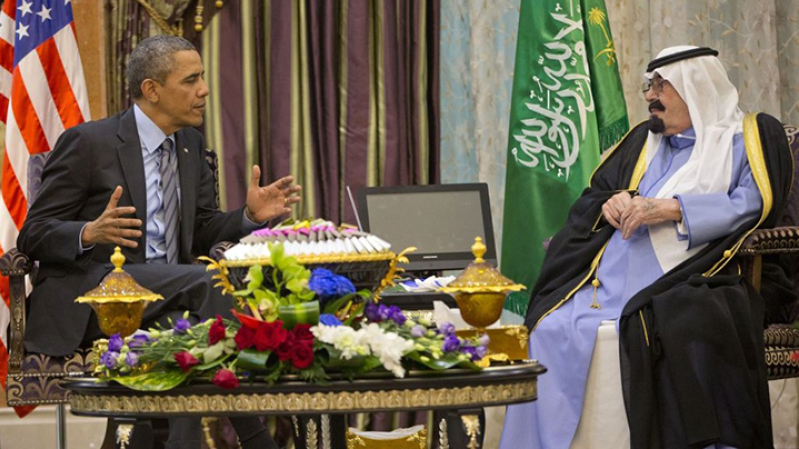
Here in America, we're continuously being told by our president that the murder of those who oppose Islam is something done only by "extremists," but a ruling by the Saudi Arabian government will put a man to death for renouncing Islam.
The unidentified man, said only to be in his twenties, released a video showing him ripping up Islam's holy book, the Koran, and hitting it with a shoe. He is also said to have renounced Allah, Mohammed, and Mohammed's daughter, Fatima, in the video.
The act of apostasy, as defined by Saudi Arabia's Wahhabi Sunni Muslim law, is punishable by death in most Islamic nations. The Sunni law is an interpretation of the Sharia law and gives Muslim religious leaders complete control over the justice system.
But it's thought that Saudi Arabia is getting more strict on these laws after recent infractions have been increasing. Last year, a court in Jeddah sentenced Raif Badawi to 1,000 lashes and 10 years in prison for publicly criticizing the Saudi Arabian kingdom and calling for reform to Islam.
This most recent death sentence comes at a sensitive time for Saudi Arabia as it is America's biggest ally in the Middle East and promises to remain that way even after the recent death of King Abdullah on January 23rd. Abdullah's half-brother, Salman, has taken over as king, but many believe that he will not make any type of vast policy changes.
A scheduled meeting between Saudi Crown Prince Mohammed bin Nayef, the third in line for the Saudi throne, and British government officials is said to still be on for later this week, but the topic may now turn to this recent death sentence.
"With the deputy crown prince's visit UK officials should try to exert some real pressure on him over Saudi Arabia's disgraceful human rights record," said Allan Hogarth, head of policy and government affairs for Amnesty International. The human rights group has accused the British government of "wearing a muzzle" when it comes to renouncing the violations seen in the Arabian superpower's policies.
According to a 2012 study by the Pew Research Center, 18 Middle Eastern and North African nations criminalize apostasy. That's 11 percent of all nations worldwide. The typical method of carrying out the death sentence in Saudi Arabia is beheading, but that hasn't been determined yet for the unidentified man.
It's thought that the Saudi Arabian government carried out 26 executions in 2011 and a "minimum" of 79 in 2013, according to Amnesty International. Foreigners accounted for almost half of those 2013 executions, but no westerners have been reported among those.
According to Saudi Arabian law, in instances of apostasy, the accused is given three days to repent and return to Islam, but if he refuses, a beheading will be carried out in public. Saudi Arabia is currently only one of four countries in the world that still carries out public executions, and the only one that does it on a regular basis.







